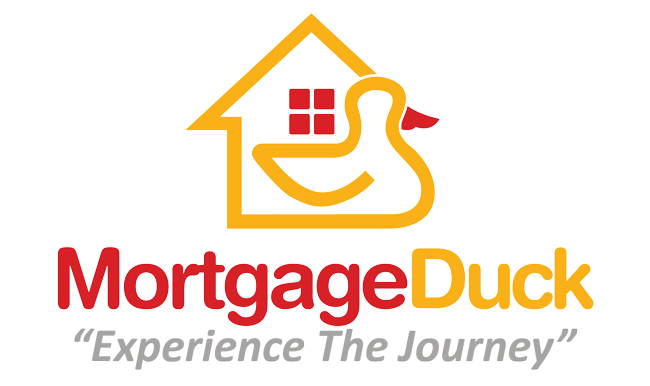We recommend you do. House hunting is much easier and smoother if your credit score and finances are in order prior to submitting any home purchase offers. Most sellers may require a prequalification letter when considering any offers.
It’s quite simple.
By phone: 888.419.8545
By email: info@mortgageduck.com
By completing our Quick Form
The documentation required for each loan will vary depending on your loan program. You can expect to provide supporting documentation to provide proof of income, employment and assets.
Credit scores (FICO scores) are based on information collected by the credit bureaus and information reported monthly by your creditors in reference to the balances you owe and the timing of your payments. A credit score is a gathering of all this information converted into a number that helps a lender determine the likelihood that you will repay the loan on time. The credit score number is generated by the credit bureau and not by the lender. Credit scores are calculated by comparing your credit history with millions of other consumers.
A number of things affect your credit score, and those include your payment history, your outstanding obligations, the length of the time you have had outstanding credit, the types of credit you use, and the number of inquiries that have been made about your credit history in the recent past.
Credit scores range from approximately 300 to 900. The higher the credit score, the lower the risk. Credit score will also impact the loan level adjustments and pricing of your loan.
The debt-to-income ratio is one way lenders will measure your ability to manage the payments you make on a monthly basis to repay the money you have borrowed. To calculate your debt-to-income ratio, the lender will add up all your monthly debt payments and divide them by your gross monthly income. Your gross monthly income is the amount of money you’ve earned before your taxes and other deductions.
Mortgage insurance protects the lender against financial loss in the event that a mortgagor stops making the monthly mortgage payments. It is required on mortgage programs where the loan to value is greater than 80% of the sales price or appraised value, whichever is lower. Another option is Lender Paid Mortgage Insurance (LPMI). This option, the lender will pay the mortgage insurance, however it is offset by a higher interest rate charged to the borrower.
The loan to value ratio is a comparison between the value of your loan and the value of your home. To determine your LTV, the lender will divide your loan amount by the lesser of the home’s appraised value or sales price (if applicable).
A fixed rate loan carries an interest rate that will not change over the life of the loan.
An ARM loan is an adjustable rate mortgage. ARM loans have a fixed introductory interest rate that lasts a set period of time and adjusts annually thereafter for the remaining time period. After the fixed time period your interest rate will change and so will your monthly payment.
i.e.
Adjustable Rate Mortgages are determined by adding a margin to an index on a specific date.
The interest rate is the rate you agree to pay for your mortgage loan. It is used to determine the interest portion of your monthly payment. The annual percentage rate (APR) includes your interest rate plus any upfront costs and finance charges to obtain that rate or to close the loan. The APR is higher than the actual rate or effective loan rate because it annualizes the fees.
A discount point is generally a percentage of the loan amount and is paid to the lender to buy down or lower an interest rate.
PITI is an acronym for Principal, Interest, Taxes and Insurance. It is the collective dollar amount a borrower pays when buying a home with a mortgage loan. PITI is factored into the borrower’s monthly payments when determining how much house the borrower(s) can afford.
What is Principal?
Principal is the total amount of money you borrowed from the lender in order to make your home purchase. This amount will be the sales price of the home minus any down payments you made.
What is Interest?
Interest is the amount the lender charges the borrower for them giving the loan to make the purchase or refinance transaction.
What are Taxes?
Taxes refer to property taxes you have to pay to your county. In some cases you pay these directly to your tax assessor’s office, but often mortgage lenders prefer to escrow them and pay them on your behalf so that the lender knows the taxes are getting paid each period.
What is Insurance?
This refers to homeowner’s insurance that you have to pay based on the value of your property and the likelihood of replacing it or fixing it in some way should it become structurally damaged (as in hail, wind, fire or some other external sources. Theft may also be covered by your homeowners insurance.)
When your mortgage is impounded, an escrow account is opened and funds from your PITI are collected to make payments on your behalf for real estate taxes and premiums for insurance premiums such as homeowners insurance.
A rate lock or lock-in refers to a contractual agreement between the lender and the borrower, guaranteeing a specific interest rate on the loan, provided that the loan is closed within a certain period of time.
The main components to the rate lock are: loan program, interest rate, points, and the term or length of the lock period.
A point equals 1 percent of a mortgage. Lenders sometimes charge “origination points” to cover expenses of originating a loan. Sometimes borrowers may want to pay “discount points” to reduce the loan’s interest rate.
Interest is accrued in between the closing date and the last day of that calendar month. This amount is added to the closing costs for your loan rather than making your first monthly payment larger in efforts to absorb the extra that would be due.
Closing costs are the fees incurred during the loan transaction. These costs include but are not limited to appraisal fees, title and escrow fees, attorney fees, pre-paid interest fees, lender fees, loan origination fees, 3rd party service fees – to name a few. These costs may vary for each customer due to differences in the type of mortgage program, the property type and location and other factors. You will receive a loan estimate of your closing costs in advance of your closing date for your review.
A loan estimate is a three-page form that you receive after applying for a mortgage and goes into effect on October 3, 2015. The Loan Estimate discloses important details about the loan you have requested, including but not limited to the estimated interest rate, monthly payment, and total costs for the loan.
The closing disclosure is a new five-page form that provides final details about the mortgage loan that you have selected. It includes the loan terms, your projected monthly mortgage payments, and how much you will pay in fees and other costs to get your mortgage (closing costs). You can compare your final terms and costs to those estimated in the Loan Estimate that you previously received from the lender.
An appraisal report is a written description and estimate of the value of a property. National regulators govern not only the format for the appraisal; they also require the appraiser’s qualifications and credentials to be in good standing.
The appraiser will create a written report and we will provide you with a copy prior to closing. The report includes the comparison of qualities of your home with other homes that have sold recently in the same neighborhood. These homes are referred to as “comparables” and play a significant role in the appraisal evaluation process. Abiding by industry guidelines, the appraiser will try to weigh the major components of your home to come up with an estimated value of your home. The appraiser adjusts the price of each comparable sale (up or down) depending on how it compares (better or worse) against your property. If your home if for an investment purpose, or is a multi-unit property, the appraiser will also consider the rental income that will be generated by the property to help determine the value.
The lender’s quality control procedures prohibit the use of any appraisal not ordered directly by them from one of their licensed appraisers in your area.
Industry underwriting guidelines require the lender to use the lower of the appraised value or the sales price to determine your down payment requirement.
Should you have any problem at all with our electronic disclosures and/or documents, don’t worry, just call us toll free at 888.419.8545 or email us at processing@mortgageduck.com and one of our friendly associates will assist you.
No worries. Simply send us a quick email request to info@mortgageduck.com and we will mail them at no additional cost to you. Please make sure the email references your full name and the subject property address.
We need information about all the real estate you own to make sure we have a reasonable estimate of your net worth and debt-to-income ratios.
The purpose of the title insurance is to ensure your rights and interests to the property, and those of your lender, are completely protected. Title insurance companies issue two types of title policies. An Owner’s Policy which covers the homeowner and a Lender’s Policy which covers the lending institution. If the loan is for a purchase transaction, both types of policies are issued at the time of closing. If the loan is a refinance, you already have an owner’s policy that was issued when you purchased the property, so then only a lender’s policy will be issued.
If any claim covered under your policy is ever filed against your property, the title company will pay the legal fees involved in the defense of your rights. The title company is also responsible to cover losses arising from a valid claim. This protection will remain in effect as long as you or your heirs own the property.
Don’t panic. We are here to help make this process a hassle-free experience.
Contact our Client Relations team for immediate support:
Call Toll Free 888.419.8545
Can’t place a call right now? No problem, email us at: info@mortgageduck.com
Complete our Quick Form for a free/no obligation loan quote or loan consultation.

